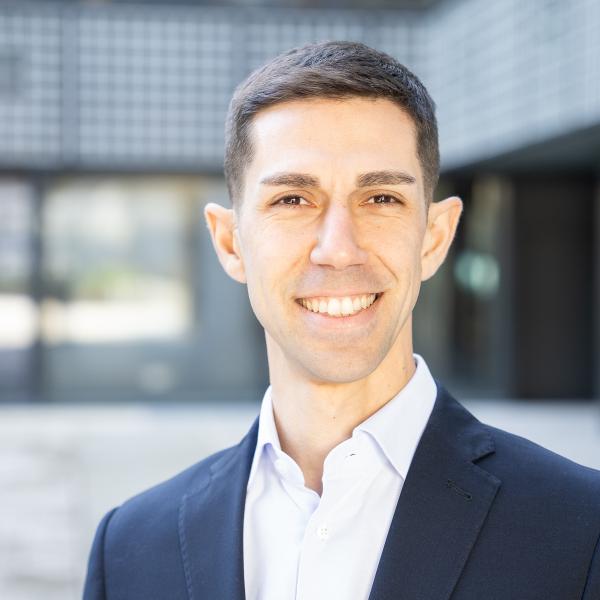The Shape of Dynamics by Dr. Alberto Padoan, UBC
Dear Members and Guest,
Please join us for this interesting talk on control systems by Dr. Alberto Padoan from UBC.
The event is hybrid, please register to help us with planning.
Abstract
Autonomous systems are increasingly pervasive, capable, and complex—but behind every such system lie one or more feedback loops that shape how it senses, decides, and acts. Control theory has guided feedback design for decades, yet modern systems now expose the limits of its model-based foundations. The models it relies on are frequently inaccessible, inaccurate, or too rigid to fully exploit today’s data, storage, and computational resources. This talk explores a modeling approach grounded in behavioral systems theory, where systems are defined not by equations but by the set of trajectories they exhibit. The structure—or “shape”—of this set determines not only its mathematical properties but, crucially, also its tractability, governing the analytical and algorithmic tools suitable for analysis and design. I will show how this framework offers a principled bridge between parametric and non-parametric representations, enabling scalable, adaptive, and certifiable control in real-world settings—from fault detection in building automation systems, to certification in algorithmic pipelines, to large-scale control in urban traffic networks. I will conclude by outlining emerging directions and open challenges, including nonlinear and distributed dynamics, uncertainty quantification, and architectural considerations.
Date and Time
Location
Hosts
Registration
-
 Add Event to Calendar
Add Event to Calendar
Loading virtual attendance info...
- UBC Point Grey Campus
- 6250 Applied Science Lane
- Vancouver , British Columbia
- Canada
- Building: CEME
- Room Number: 1203
- Contact Event Host
-
- Co-sponsored by nagamune@mech.ubc.ca
Speakers
Alberto
The Shape of Dynamics
Abstract
Autonomous systems are increasingly pervasive, capable, and complex—but behind every such system lie one or more feedback loops that shape how it senses, decides, and acts. Control theory has guided feedback design for decades, yet modern systems now expose the limits of its model-based foundations. The models it relies on are frequently inaccessible, inaccurate, or too rigid to fully exploit today’s data, storage, and computational resources. This talk explores a modeling approach grounded in behavioral systems theory, where systems are defined not by equations but by the set of trajectories they exhibit. The structure—or “shape”—of this set determines not only its mathematical properties but, crucially, also its tractability, governing the analytical and algorithmic tools suitable for analysis and design. I will show how this framework offers a principled bridge between parametric and non-parametric representations, enabling scalable, adaptive, and certifiable control in real-world settings—from fault detection in building automation systems, to certification in algorithmic pipelines, to large-scale control in urban traffic networks. I will conclude by outlining emerging directions and open challenges, including nonlinear and distributed dynamics, uncertainty quantification, and architectural considerations.
Biography:
Bio
Alberto Padoan was born in Ferrara, Italy, in 1989. He received the Laurea Magistrale degree (M.Sc. equivalent) cum laude in Automation Engineering from the University of Padua in 2013 and the Ph.D. degree in Control Theory from Imperial College London in 2018, where his dissertation received the IET Control & Automation Doctoral Dissertation Prize (2018) and the Eryl Cadwallader Davies Prize (2020). From 2017 to 2021, he was a Research Associate in the Control Group at the University of Cambridge and a member of Sidney Sussex College. In 2021, he joined the Automatic Control Laboratory at ETH Zurich and the NCCR Automation, first as a Postdoctoral Scholar and later as a Senior Scientist. Alberto is currently an Assistant Professor in the Department of Electrical and Computer Engineering at the University of British Columbia. His research focuses on modeling, analysis, and control of complex dynamical systems, with a particular emphasis on geometric and data-driven control, biological applications, and large-scale cyber-physical systems.
Agenda
Agenda:
Gathering: 3:45pm - 4:00pm
Talk followed by Q&A: 4pm - 5:30pm


